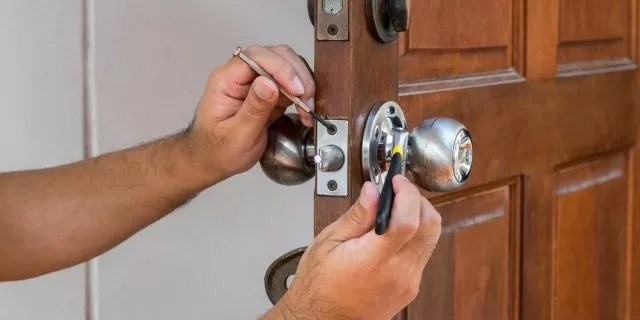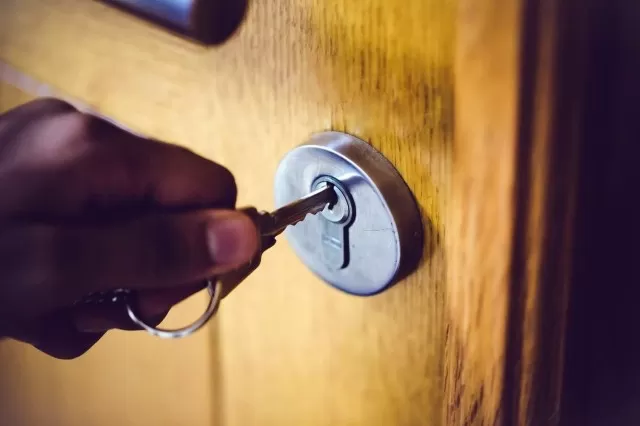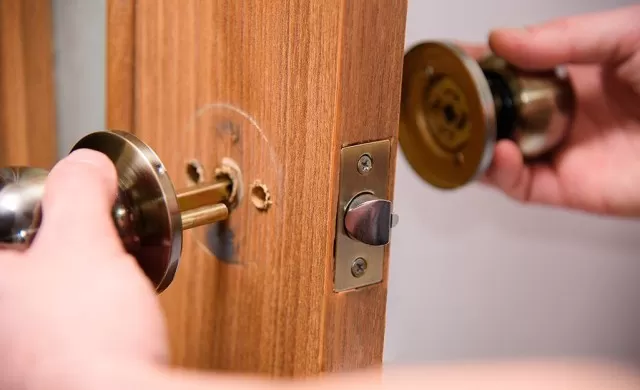Discover the key steps to improve home security through door lock replacement or rekeying.
Comparing the Cost: Replacing vs Rekeying Door Locks

Replacing vs Rekeying.
Which is the Better Option for Changing Door Locks? When it comes to changing locks on a door, you have two options: replacing them or rekeying them. Both methods guarantee that old keys will no longer work with the lock.
In this article, we will provide a detailed cost comparison between professional locksmith services and DIY rekeying.
Replacing Door Locks: A Comprehensive Security Measure Replacing door locks involves removing the existing lock, including the handle if it’s a handle-lock combo, and installing a brand new lock in its place.
The cost typically ranges from $80 to $300 per lock, depending on the quality, with an additional $200 for professional installation. However, many door locks are designed for DIY installation and come with instructions.
Rekeying Door Locks: A Common Choice for Apartment Complexes Rekeying door locks has become the preferred method in apartment complexes.
This process entails realigning the pins and springs in the lock’s inner workings to match a new key. You can purchase a rekeying kit for $15 to $25 to do it yourself, or hire a professional locksmith for $80 to $160 to handle the job.
Thinking of Hiring a Locksmith? If you require locksmith services, we recommend finding reputable local professionals and obtaining multiple quotes for your project.
Ensure Security: Rekeying Your Locks When Moving
Rekeying: An Essential Step When Moving to a New Home During the construction of a new house, multiple individuals such as subcontractors, inspectors, and real estate agents may have access to the keys.
To maintain security, it is crucial for a new homeowner to rekey the locks and ensure that only authorized individuals can enter. Typically, this responsibility falls on the builder, although the buyer’s real estate agent ensures its completion before closing. Rekeying is also recommended when moving into a different home, as you can never be certain how many keys are in circulation. If you are purchasing an existing house, it becomes your responsibility to have the locks rekeyed. Renters should review their lease agreements to determine any regulations regarding changing locks, as providing a key to the newly rekeyed lock may be required by the landlord.
Replace Worn-out Locks to Restore Security

Replacing Damaged Locks: Restoring Security Effectively Over time, locks experience wear and tear due to their moving parts.
Jamming the wrong key or the repetitive use of locking and unlocking the door can damage the internal mechanism, resulting in a sticky or difficult-to-turn key. Rekeying a damaged or worn lock will not resolve the underlying issues since it cannot restore the worn-out mechanism.
In such cases, it is best to replace the entire lock to ensure optimal security.
Safeguarding Your Home: Changing Locks After Key Loss or Theft
Replacing Locks: A Must when Keys Are Lost or Stolen If your house keys are ever lost or stolen, one of your top priorities should be changing the locks on your doors to prevent unauthorized access.
Rekeying is the recommended method in such situations, just as it would be if a family member misplaces a key. However, if the only key to the lock goes missing and you don’t have an original key, you will need to replace the entire lock.
Simplify with a Single Key: The Convenience of Rekeying

Rekeying for Convenience: Having a Single Key for All Locks Having to carry multiple keys for different locks in your house can be frustrating.
However, rekeying can provide the convenience of using a single key for all locks,.
*The information is for reference only.